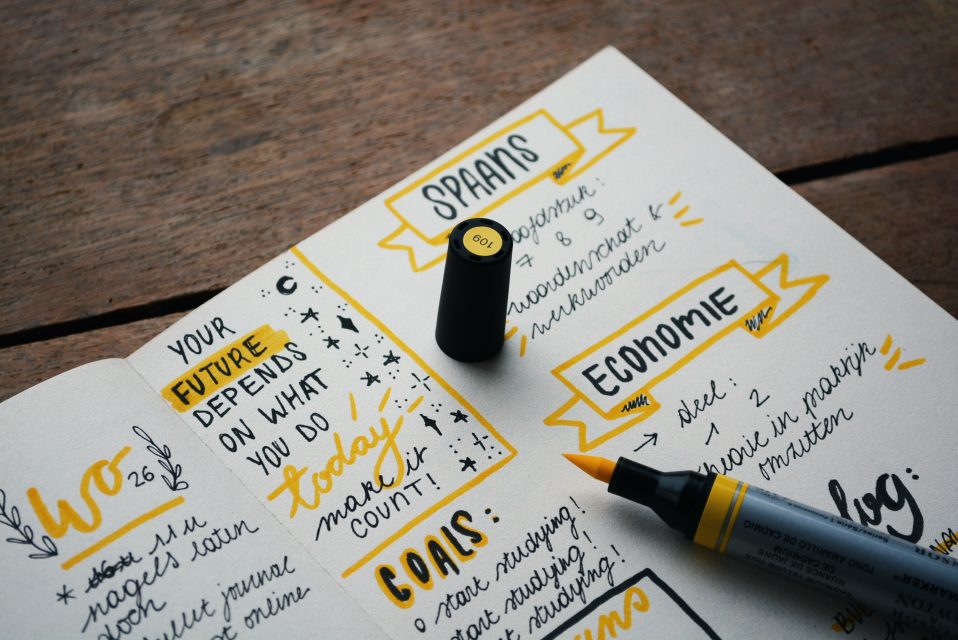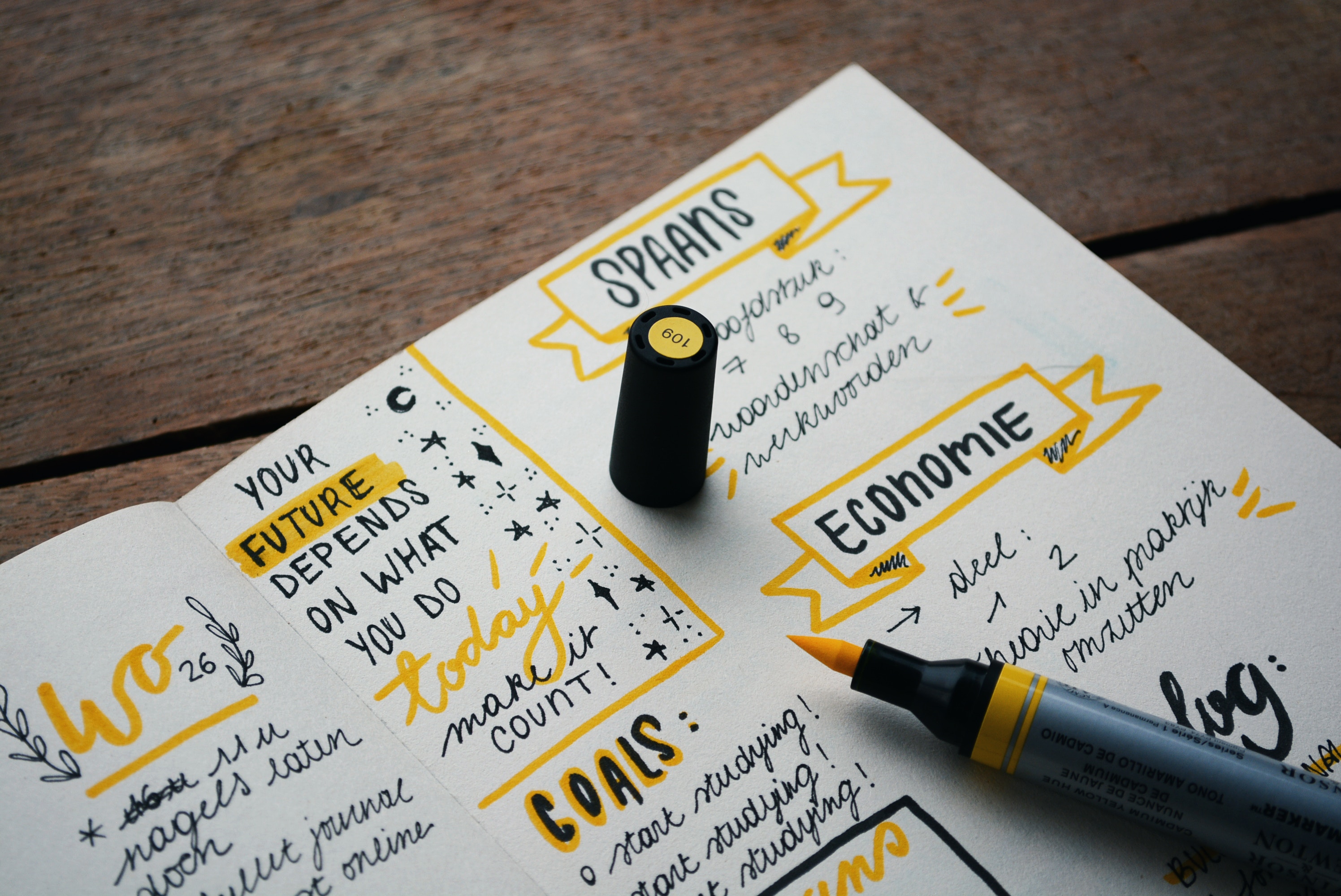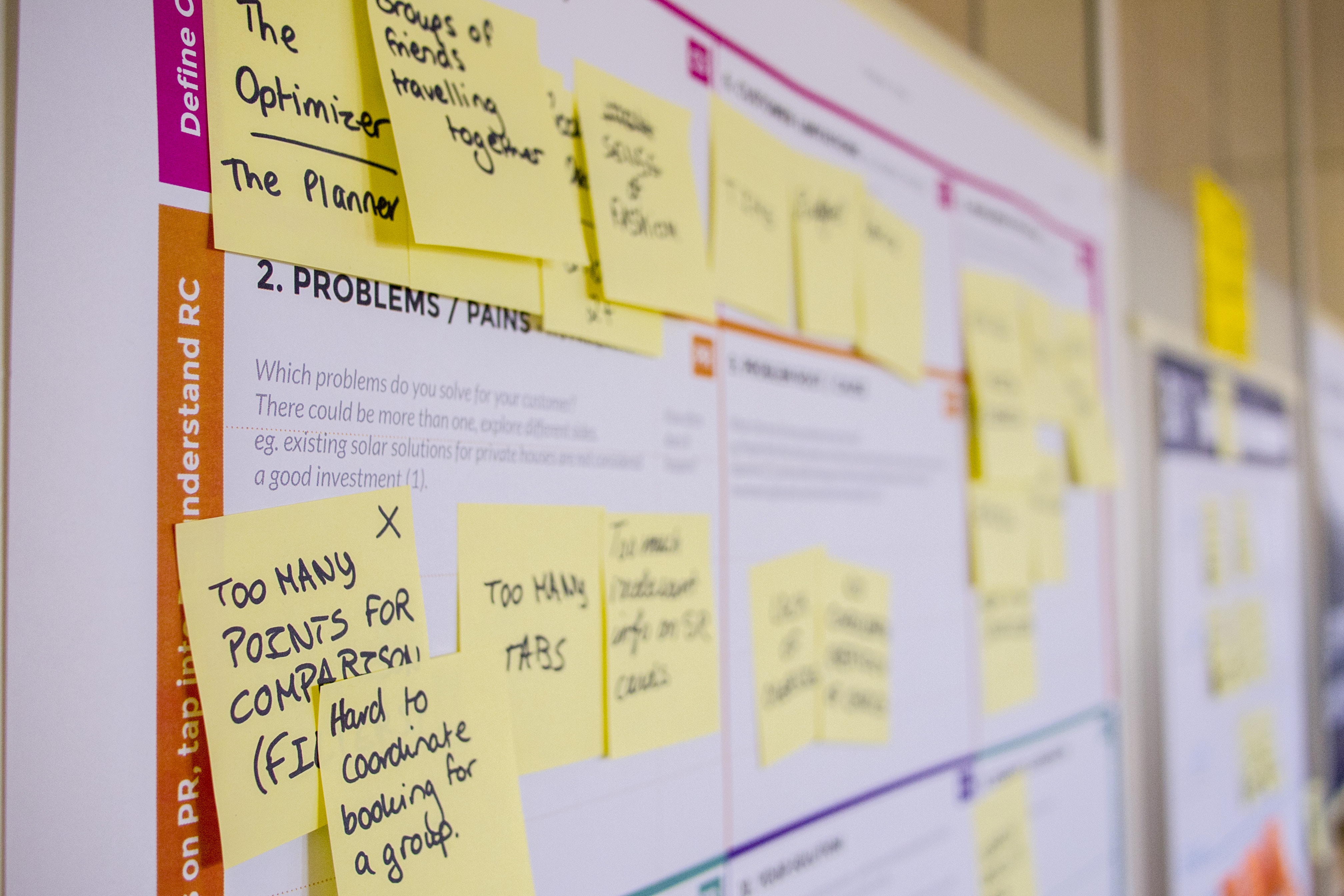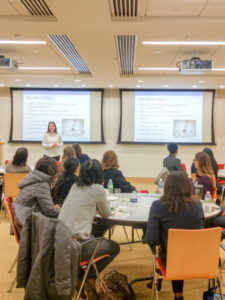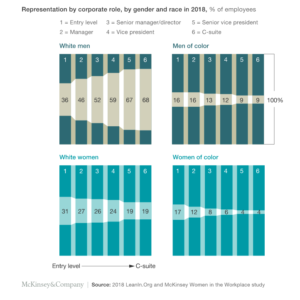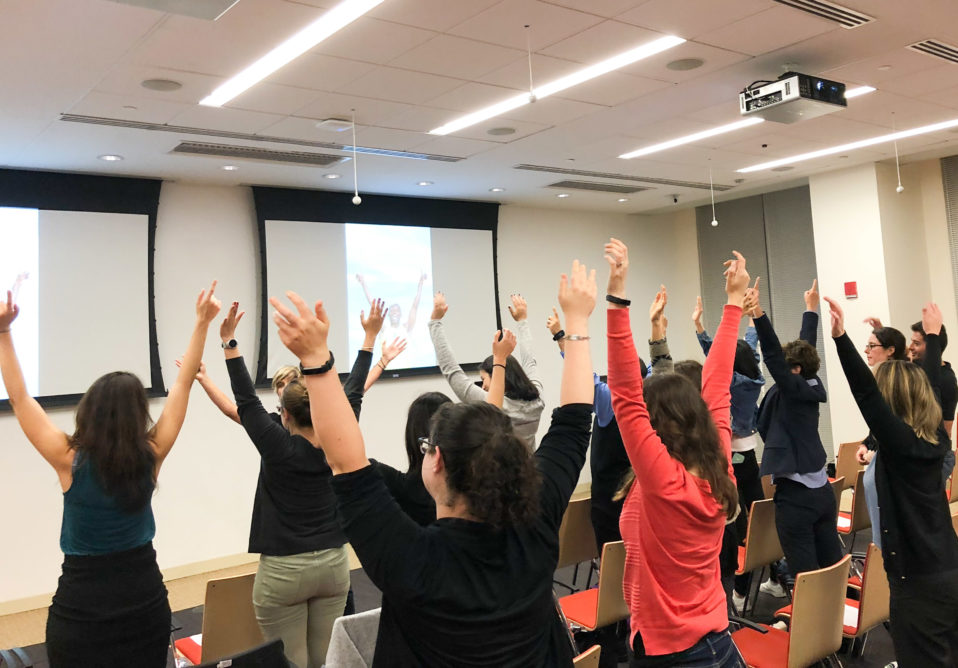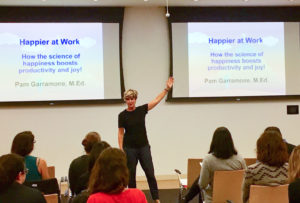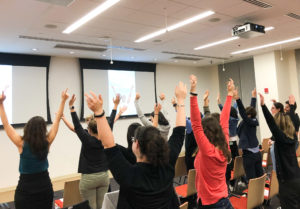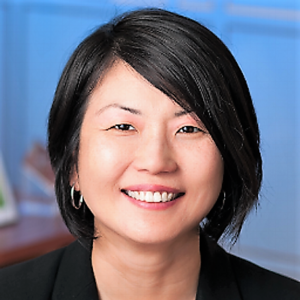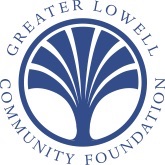On October 24th, Women Accelerators was thrilled to welcome Melody Wilding for a webcast on “Imposter Syndrome.”
Melody Wilding is a performance coach and licensed social worker. She helps high-achievers master the mental and emotional aspects of striving for a successful career and a balanced life. Her clients are managers and leaders at places like Google, Facebook, and HP. She helps them gain more confidence, assertiveness, and influence. That allows them to reach goals like being promoted twice in one year and doubling their salary. Melody also teaches Human Behavior at Hunter College in NYC.
She helped us learn more about imposter syndrome, something we’ve all heard about and most have experienced, if not, on a daily basis. More importantly, Melody taught us a few ways to combat imposter syndrome and thrive!
So what is imposter syndrome?!
Have you ever felt like you don’t belong? That you are not good enough or smart enough to be filling a role you hold? Imposter syndrome can also be thought of as imposter phenomenon. The feeling that you are a fraud and that you do not deserve whatever accomplishment, experience, role etc… is what imposter phenomenon refers to – and it IS real!
History
Imposter syndrome was first identified in 1978 by psychologists Pauline Rose Clance and Suzanne Imes. They were doing research and noticed a pattern in successful women which they termed “intellectual phoniness.” They coined the term “imposter syndrome” which described the feelings they observed presenting most commonly in high achieving women. Further defined as, the crippling feeling that you do not feel you are worthy of the success you get. The phenomenon is marked by the inability to internalize your achievements although there is a lot of evidence to the contrary. Since the initial study, though still most prevalent in high achieving women, research has shown that everyone can experience the phenomenon.
While it was discovered by a pair of psychologists, imposter syndrome is not a clinical disorder. It does not appear in the Diagnostic and Statistical Manual of mental disorders (DSM) but can be a contributing factor leading to anxiety and depression. Fundamentally imposter syndrome represents an “inaccurate self assessment.” This may sound harmless but imposter syndrome can have detrimental effects on your daily life so it should not be ignored.
What does it look like in life?
Imposter syndrome can manifest itself in what may feel like anxiety or depression, which it is certainly related to, but in itself, imposter syndrome is more of a phenomenon or experience. It can be tied to a fairly predictable cycle (see image below).
Generally the feeling starts with a triggering event, this event could be a project or challenge generally related to work. That then sets off a chain reaction of habitual thoughts and feelings.These thoughts and emotions influence behavior. The reaction usually falls within two camps: over preparation & procrastination – generally individuals fall into one category but could be a combination of both. Then at some point we experience something good, a “success” and get a feeling of relief. Along with the relief, we get positive feedback but we usually ignore or push back this feedback, contributing it to effort and discredit it or say it was luck — then the cycle goes around again. How do we stop it?
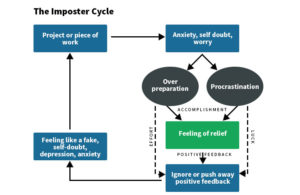
What are the effects of imposter syndrome?
Of course, this constant cycle leads to a lot of self doubt.
But it can lead to a lot of other detrimental effects too. Things to watch out for:
– Reluctance to ask for help at work
– Turning down/avoiding the search for new opportunities (because fear of failing)
– Perfectionism and procrastination tendencies/distractions
– Negative self talk
– Triggering anxiety and depression especially if there is a predisposition to the conditions
How do you manage imposter syndrome?
Up to 70% of people will experience imposter syndrome at some point in their career. We tend to glorify success and feel the doubt or feeling with go away the more successful or higher you become within an organization but it is actually the opposite. For a variety of reasons, women are much more vulnerable – 2/3 of women experience imposter syndrome!
With the realization that you are not alone, learning tools to manage imposter syndrome can help limit its effects on your life. We do not want those feelings to go away but we want to manage them so we can go forward. Address the thoughts when they first pop up in the cycle!
UNTWIST YOUR THINKING!
Negative self talk is a hallmark of imposter syndrome. Up to 85 percent of the thoughts we have every day are the same, this applies especially to the negative thoughts. Which means that the negative thoughts become automatic when faced with a stressful event – called cognitive distortions (unhelpful thinking patterns). Types of cognitive distortions are listed in the table below:
| Catastrophisizing |
You expect disaster |
What if I end up broke and in the street |
| All of nothing thinking |
Things are black and white, good or bad. |
I have to be perfect or I’m a failure |
| Overgeneralization |
If something bad happens once then you expect it to always happen |
I’m always screwing up |
| Mental Filter |
You dwell on a single negative detail |
You obsess over the one “meets expectations” on your performance review. |
| Emotional Reasoning |
You believe what you feel must automatically be true. |
I feel stupid, therefore I am. |
| Mind Reading |
Without their saying so, you know what people are feeling and thinking |
She didn’t respond to my email so I know she hates me. |
| Personalization |
You hold yourself accountable for things that are beyond your control |
The project failed. I didn’t spend enough time on it. |
How do you fight cognitive distortions?
For the long term, work to change thought patterns.
- Record your thoughts! What is your inner dialogue saying to you? What are your greatest hits?
- Name the pattern (ie. mind reading) – psychology shows that once we label something – it actually helps us create emotional distance and lower the power the thought has over us.
- Generate 1-3 facts to dispute the thought.
*Mood kit is a phone application that can help you do this real time!
For the short term,
- Accept don’t deflect – be cognizant of the phrases that you may be using “it was nothing” “I just threw this together” start practicing welcoming in praise and not pushing it away- when you get a compliment, keep it at a tweet length response OR even better – just say “thanks.”
- Create a brag file! It is a natural way to start to eliminate the bias we feel against ourselves. This provides a visible solution to start to have pride in your own accomplishments. Take stock in each day of what went well and what you’re proud of– make note of any outcomes/successes.
*Bonus: A brag file is good to have when you are prepping for an interview or updating your resume.
- Go on the offense. It is helpful to practice more/exposure technique. Ie. if you are afraid of getting feedback asking for it more will actually help you build the tolerance to it more. When we proactively solicit feedback we find it more helpful. Confidence is a skill and like anything else it takes practice and failures will occur.
- Seek a mentor or sponsor. Imposter syndrome thrives in a setting where we are lacking role models- seeking mentorship and sponsorship in your workplace or joining events & groups can help tremendously. Join Melody at melodywilding.com/community for a pre-established growing community for accountability, inspiration and a place to find advice as you grow in your career.

Want to learn more about Melody or sign up to work with her? Check out her site here: https://melodywilding.com/
Finally, remember that we are in this together. Empower, Engage and Elevate!

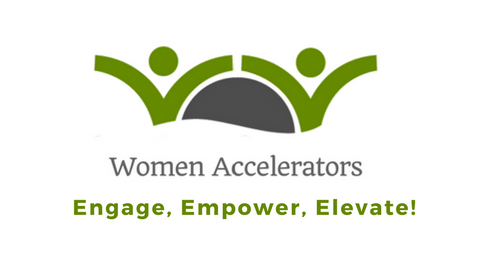
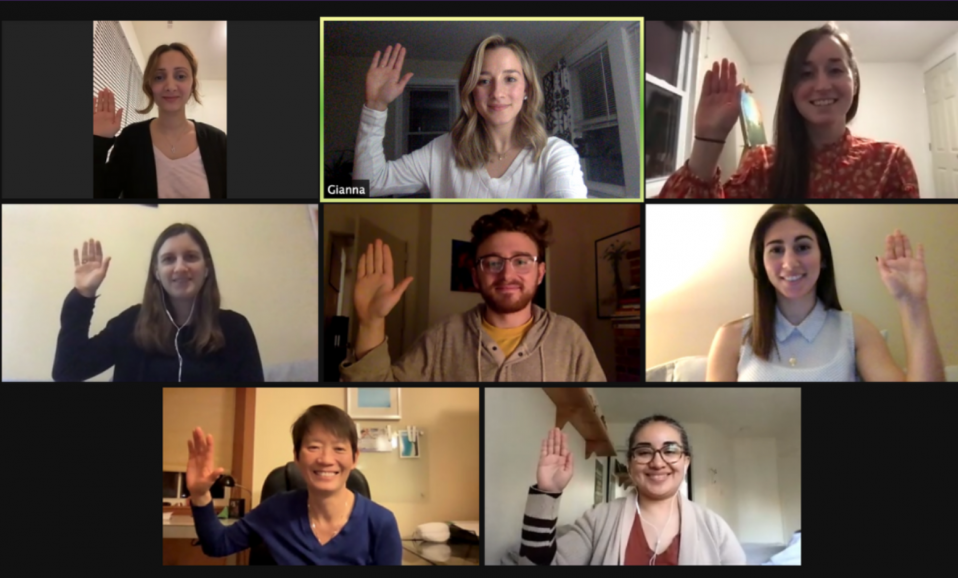







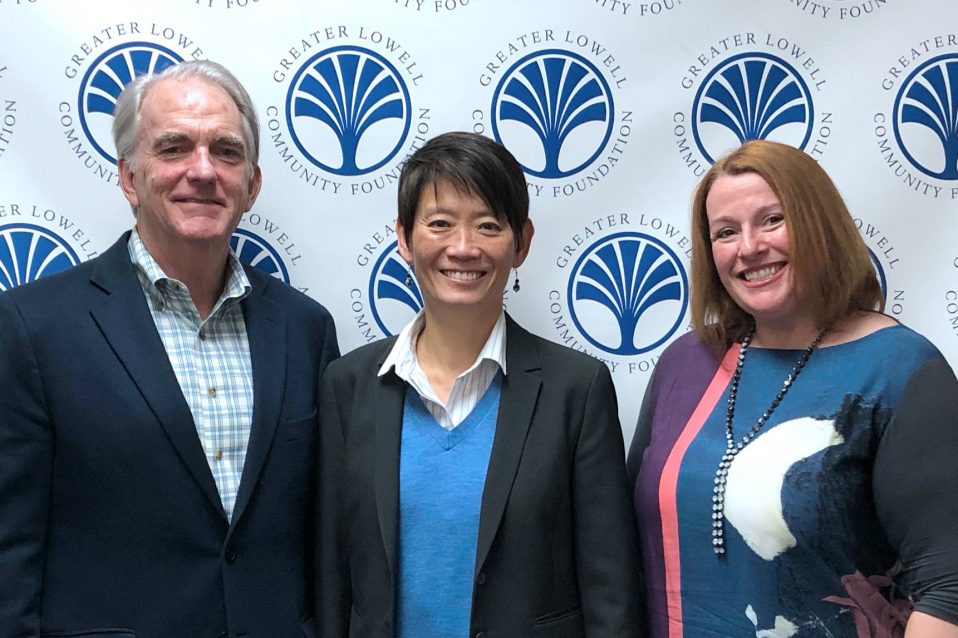


 more than one mentor. One of the informal mentorship models I like is peer mentoring. It happens more often than you think. Think of a time you asked a friend or a coworker about something that you did not know well but they did. Usually, you get the answer you need. You come to them because you think that they are the experts in the topic and this is often well perceived and appreciated. Another way to get mentoring opportunities is to talk to your manager or advisor directly and express to them your needs. Many companies and academic institutes already have a mentoring program in place, but in case yours do not, it is absolutely OK you ask.
more than one mentor. One of the informal mentorship models I like is peer mentoring. It happens more often than you think. Think of a time you asked a friend or a coworker about something that you did not know well but they did. Usually, you get the answer you need. You come to them because you think that they are the experts in the topic and this is often well perceived and appreciated. Another way to get mentoring opportunities is to talk to your manager or advisor directly and express to them your needs. Many companies and academic institutes already have a mentoring program in place, but in case yours do not, it is absolutely OK you ask. 
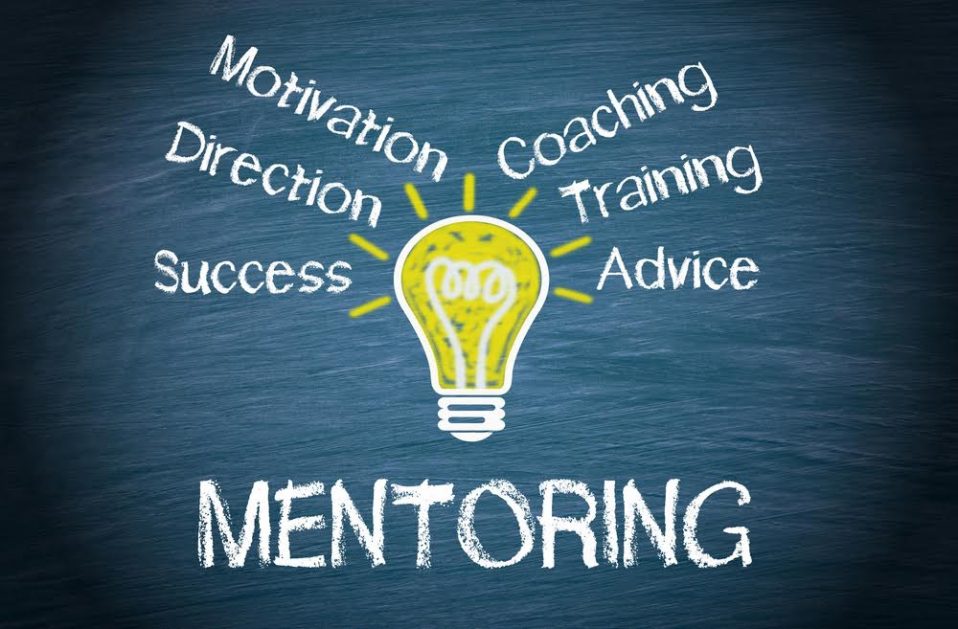

 have a mentor to guide you through difficult times. I studied bioinformatics in college. It is one of those majors that have a severe skewed male to female ratio. On top of that, the school I went to was an engineering school and that did not help restore the ratio balance. Almost all my teachers and peers were men. It was very difficult to relate to them. But still, I finished my degree with a reasonably good GPA and moved to the US in pursuit of a Ph.D. in computational biology. Again, I had the same problem finding a role model. This is also the time I realized that I am not only woman, I am a queer woman. At the time, marriage equality was only in a few states and many members of the LGBTQ community in academia were not publicly. I could not find a single faculty member in my department or any related departments that is both woman and gay. I was lucky that I found a community of folks who support LGBTQ rights in the small college town. We became friends; we supported each other. We organized “Food Not Bomb” events feeding the homeless and the poor. We went to underground art shows and concerts. We participated in marches demanding women’s rights. It was through these events that I learned how to organize and lead. These people are my friends and also my mentors. We helped each other grow.
have a mentor to guide you through difficult times. I studied bioinformatics in college. It is one of those majors that have a severe skewed male to female ratio. On top of that, the school I went to was an engineering school and that did not help restore the ratio balance. Almost all my teachers and peers were men. It was very difficult to relate to them. But still, I finished my degree with a reasonably good GPA and moved to the US in pursuit of a Ph.D. in computational biology. Again, I had the same problem finding a role model. This is also the time I realized that I am not only woman, I am a queer woman. At the time, marriage equality was only in a few states and many members of the LGBTQ community in academia were not publicly. I could not find a single faculty member in my department or any related departments that is both woman and gay. I was lucky that I found a community of folks who support LGBTQ rights in the small college town. We became friends; we supported each other. We organized “Food Not Bomb” events feeding the homeless and the poor. We went to underground art shows and concerts. We participated in marches demanding women’s rights. It was through these events that I learned how to organize and lead. These people are my friends and also my mentors. We helped each other grow.




